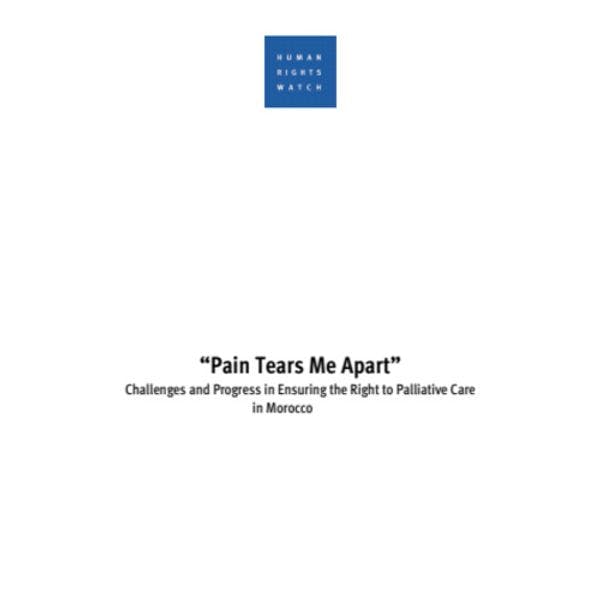Morocco's long road to comprehensive palliative care
In May, 2014, the World Health Assembly unanimously adopted the resolution on strengthening of palliative care as a component of comprehensive care throughout the life course and called on member states to ensure that it is integrated into all levels of the health-care system. Many countries—not only low-income and middle-income ones—struggle with the provision of comprehensive palliative care. Morocco is no exception, but an assessment of its progress and failures highlights important areas for others to consider. In its report Challenges and Progress in Ensuring the Right to Palliative Care in Morocco, released on Feb 4, Human Rights Watch lays out Morocco's fairly recent attention to palliative care provision and its persistent obstacles and barriers.
In the 1990s, palliative care was non-existent in the country and oral morphine was introduced for the first time only in 1995. The Moroccan Society of Pain and Palliative Care opened in 1996, and it was not until 2005 that the first palliative care unit opened in Rabat linked to the National Oncology Institute. Two separate national health policies laid out a vision for the development of palliative care in 2010 and 2012, albeit with perhaps overambitious goals, such as “support 100% of [cancer] patients requiring palliative care by 2019”. There is also no clear direction on who is responsible for implementation and on monitoring progress. For the first time, palliative care education was included as a compulsory module in the undergraduate medical curriculum in 2015.
These are all very important first steps and it is good to see that palliative care has become a national priority in a region that is particularly weak in the development of palliative care services. However, there are many unnecessary obstacles to making adequate pain relief widely available. For example, morphine and its derivatives are labelled “poisons” in the controlled substance laws and require a special prescription pad. Only a small percentage of physicians are able to prescribe opioids and oral morphine is not available for those on the public insurance scheme outside hospitals. Palliative care should become an essential part of health care worldwide. All countries must accelerate progress urgently.
Keep up-to-date with drug policy developments by subscribing to the IDPC Monthly Alert.
